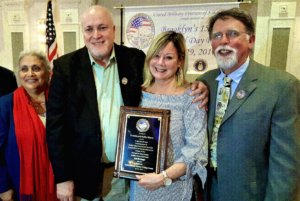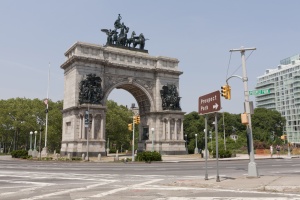I have always found it intuitively obvious that cities are made for people. The cities we admire most down through history are the cities that put human needs above all other needs: the needs of real estate developers, of the finance industry, the oil companies, the auto industry, the need for parking lots and highways and flat fix joints and auto glass and car stereo installers and muffler shops and junkyards.
These things are all necessary but its important to keep in mind that all these things should only be supported to the extent that they serve genuine human needs.Streets are for people. Streets are one of the main public spaces in every city where people stroll, shop, meet, walk, talk and conduct their daily lives. When the speed limit for cars is too high or is ignored and violated with impunity, all of these fundamental human activities are suppressed.What is the need for speed? Motorists who claim that our economy depends on maximizing traffic volume have it completely backwards. They see traffic flow as an end in itself, something to be pursued for its own sake, utterly divorced from any valid human need.If our economic prosperity depends on maximizing traffic flow, then what is the economy for? Isnt the whole purpose of the economic market to bring prosperity to people and make the average citizens life better?The argument fails at that point because you cant make peoples lives better by running over them with cars. Its an absurd argument, that in order to make peoples lives better, we have to accept that some peoples lives are expendable. This is random human sacrifice committed in the name of progress. As an army officer in Vietnam once said, We had to destroy the village in order to save it. Its sheer hypocrisy. Lets slow down the traffic. It will improve the quality of life on our streets.Did I say random human sacrifice? Actually the victims are not random at all. Pedestrian fatalities are inflicted far more heavily on young children, on the elderly, on the poor and minorities, because these are the people who drive less.It makes sense that these groups make up a disproportionately high number of pedestrians and therefore of pedestrian fatalities. What will future generations say of us if we do so little to protect our most vulnerable citizens? Its just another facet of the dire inequality that divides us. Lets slow down the traffic. It will restore a sense justice to our streets.Finally, as a parent leader in the public schools, I have seen firsthand how treacherous the walk to school can be for our most precious citizens, our schoolchildren. Lets make sure all of our children survive to adulthood. Lets slow down the traffic.Robert HuDock is a practicing architect and urban planner and a member of Community Board 10 where he chairs the Environmental Committee and sits on the Transportation Committee. He also serves on the Community Education Council in School District 20.Guest Op-Ed: Slowing down traffic works

Robert HuDock is a practicing architect and urban planner and a member of Community Board 10.
 Generally Speaking: Bay Ridge resident named Brooklyn surrogate, Memorial Day Parade-ers honored
Generally Speaking: Bay Ridge resident named Brooklyn surrogate, Memorial Day Parade-ers honored  Captain America celebrates 75th birthday with statue in Prospect Park
Captain America celebrates 75th birthday with statue in Prospect Park